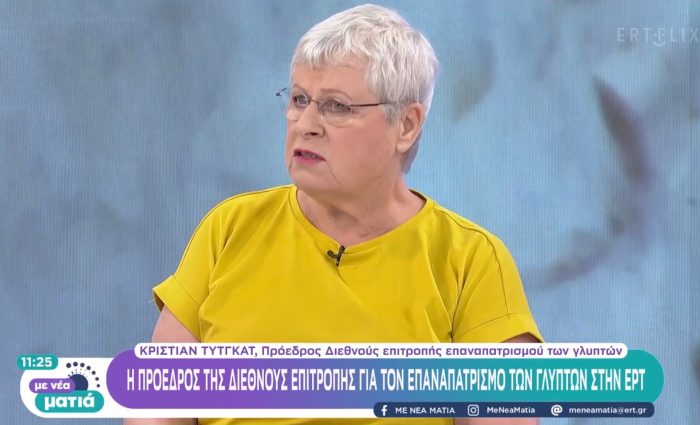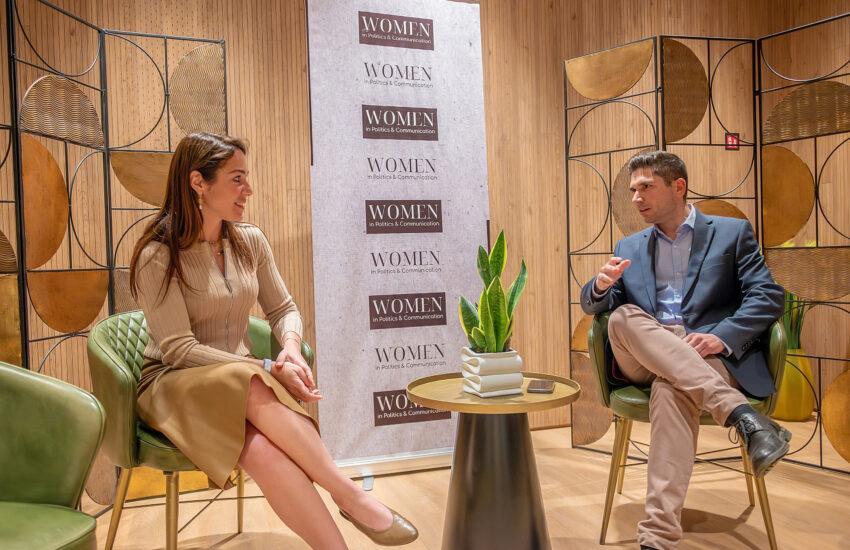IARPS unanimous!
*Alexandra Pistofidou, 4 min. read
Καθώς τα τρέχοντα γεγονότα υπογραμμίζουν τη σημασία του σκοπού μας, η Dr. Christiane Tytgat Πρόεδρος της Διεθνούς Ένωσης για την Επανένωση των Γλυπτών του Παρθενώνα (IARPS) αποφάσισε να “σηκώσει το γάντι” και να γράψει για την πρωτοφανή κοροϊδευτική ενέργεια του Ηνωμένου Βασιλείου. (Η άποψή της δημοσιεύτηκε στην ελληνική εφημερίδα „ΤΑ ΝΕΑ“ στις 30.05.2022 σε μετάφραση του δημοσιογράφου, κου Γιάννη Ανδριτσόπουλου).
Η Επιτροπή της Αυστρίας για την επανένωση των Γλυπτών του Παρθενώνα, ως μέλος του παγκόσμιου οργανισμού IARPS, μαζί με τις χώρες-μέλη του IARPS, ομοφώνως υποστηρίζουμε και συμμεριζόμαστε απολύτως τα ίδια αισθήματα.
Της Kris Tytgat
Τι να σκεφτεί κανείς για τις πρόσφατες εξελίξεις στην 40χρονη διαμάχη Ελλάδας-Βρετανίας για την επιστροφή των Γλυπτών του Παρθενώνα από το Λονδίνο; Θα μπορούσαμε να μιλήσουμε για πεισματάρικη αλαζονεία της βρετανικής πλευράς; Αυτό που σίγουρα παρατηρούμε είναι έλλειψη σοβαρότητας, καθώς η κυβέρνηση του Ηνωμένου Βασιλείου άλλαξε την πολιτική της πολλές φορές μέσα σε λιγότερο από μία εβδομάδα. Παρατηρούμε, ακόμη, σημάδια απόγνωσης από το Βρετανικό Μουσείο σε μια προσπάθεια να ανακαλύψει νέα επιχειρήματα υπέρ της διατήρησης των Γλυπτών.
Η Διακυβερνητική Επιτροπή της UNESCO (ICPRCP) ανακοίνωσε την Τρίτη 17 Μαΐου ότι η ελληνίδα υπουργός Πολιτισμού δρ Λίνα Μενδώνη αποδέχθηκε, στα τέλη Απριλίου, πρόσκληση από τον βρετανό υφυπουργό Πολιτισμού, λόρδο Στίβεν Πάρκινσον, για διμερείς συνομιλίες επί του θέματος οι οποίες θα πραγματοποιηθούν «σε εύθετο χρόνο». Αυτή η ανακοίνωση θεωρήθηκε από ορισμένους ορόσημο, καθώς για πρώτη φορά η βρετανική κυβέρνηση δέχθηκε να προσέλθει σε επίσημο διάλογο, κάτι που σίγουρα αποτελεί θετικό βήμα.
Στις 18 Μαΐου, όμως, κατά τη διάρκεια της 23ης Συνόδου της ICPRCP, ο εκπρόσωπος της Βρετανίας αμφισβήτησε την εγκυρότητα της απόφασης για τα Γλυπτά που έλαβε η Επιτροπή στην προηγούμενη συνεδρίασή της, ενώ ο αναπληρωτής διευθυντής του Βρετανικού Μουσείου δρ Τζόναθαν Ουίλιαμς υποστήριξε με πάθος ότι τα περισσότερα από τα Γλυπτά που πήρε ο Λόρδος Ελγιν συλλέχθηκαν από τα συντρίμμια που περιέβαλλαν το κτίριο! Και οι δύο ισχυρισμοί είναι λανθασμένοι: η απόφαση ελήφθη με ευρεία συναίνεση, ενώ υπάρχουν πολλά ιστορικά στοιχεία, μαρτυρίες και επιστολές εκείνης της εποχής που δείχνουν ότι τα περισσότερα από τα Γλυπτά αφαιρέθηκαν βίαια από τον Παρθενώνα, γεγονός που αποδεικνύεται και από τα σημάδια που φέρουν τα ίδια τα τεχνουργήματα. Αυτό το επιχείρημα, όπως και η παλαιότερη δήλωση του διευθυντή του Βρετανικού Μουσείου δρ Χάρτβιχ Φίσερ στα «ΝΕΑ» ότι ο Λόρδος Έλγιν έκανε μια «δημιουργική πράξη» αφαιρώντας τα Γλυπτά, και τα έσωσε από καταστροφή, φανερώνει πόσο απελπισμένο είναι το Βρετανικό Μουσείο στην προσπάθεια να δικαιολογήσει τη στάση του.
Την ίδια ημέρα, εκπρόσωπος της βρετανίδας υπουργού Πολιτισμού Ναντίν Ντόρις δήλωσε στα «ΝΕΑ» ότι η βρετανική κυβέρνηση δεν αλλάζει τη στάση της για τα Γλυπτά. Αυτό επιβεβαιώθηκε και από πηγή του γραφείου του βρετανού πρωθυπουργού. Για την ICPRCP της UNESCO το ζήτημα είναι ξεκάθαρα διακυβερνητικό, γεγονός που η βρετανική κυβέρνηση αρνείται να αναγνωρίσει. Κάποιος μπορεί να αναρωτηθεί ποιο είναι το νόημα της συμμετοχής τους σε έναν διάλογο όταν δεν είναι πρόθυμοι να ακούσουν τα επιχειρήματα της άλλης πλευράς και απορρίπτουν το ενδεχόμενο λήψης οποιωνδήποτε αποφάσεων για το θέμα;
Η δρ Μενδώνη επανέλαβε σε δελτίο Τύπου στις 20 Μαΐου ότι είναι έτοιμη για έναν ειλικρινή και καλόπιστο διάλογο με τη Βρετανία. Επιπλέον, σε δήλωσή της στη «Guardian» στις 22 Μαΐου, επισήμανε ότι «εδώ και χρόνια, οι ελληνικές Αρχές και η διεθνής επιστημονική κοινότητα έχουν αποδείξει με ακλόνητα επιχειρήματα τα αληθινά γεγονότα γύρω από την αφαίρεση των Γλυπτών». Η πιο πρόσφατη δήλωση από τη Βρετανία έγινε στις 23 Μαΐου, όταν η Ντάουνινγκ Στριτ ξεκαθάρισε στα «ΝΕΑ» ότι δεν θα υπάρξει διάλογος με την Ελλάδα για τα Γλυπτά και ότι ο νόμος περί Βρετανικού Μουσείου του 1963 δεν πρόκειται να αλλάξει.
Δεχόμενη ασφυκτική πίεση για την επιστροφή των Γλυπτών του Παρθενώνα, και χωρίς διεθνή υποστήριξη της στάσης της, η Βρετανία έδειξε την περασμένη εβδομάδα ότι δεν διαθέτει συνεπή και συνεκτική πολιτική. Ασκώντας κριτική και μη σεβόμενη τις διαδικασίες της ICPRCP, αναρωτιέται κανείς γιατί η Βρετανία έχει ακόμη εκπρόσωπο στην Επιτροπή της UNESCO;
Η Δρ Κρις Τίτγκατ είναι πρόεδρος της Διεθνούς Ένωσης για την Επανένωση των Γλυπτών του Παρθενώνα (IARPS)

IARPS unanimous!
As the currents events underline the importance of our cause, Dr. Christiane Tytgat President of the International Association for the Reunification of the Parthenon Sculptures (IARPS) decided to “take up the gauntlet” and write about UK’s unprecedented mocking action. (Dr Tytgat’s opinion was published in the Greek newspaper “TA NEA”, 30.05.2022 translated by the journalist Yannis Andritsopoulos).
The Austrian Committee for the Reunification of the Parthenon Sculptures (Parthenon Skulpturen) as member of the International Association IARPS, together with all the country-members at IARPS, unanimously support and share the same sentiments.
Dr Kris Tytgat
What to think about the recent developments in the 40 years old dispute between Greece and the U.K. on the return of the Parthenon Sculptures from London? Stubborn arrogance from British side? Certainly a lack of seriousness as the U.K. government changed its policy several times in less than a week and a sign of desperation from the British Museum to find new arguments in favour for keeping the Sculptures.
UNESCO’s Intergovernmental Committee for Promoting the Return of Cultural Property to its Countries of Origin or its Restitution in case of Illicit Appropriation (ICPRCP) announced on Tuesday May 17 that Greek Minister of Culture and Sports Dr Lina Mendoni had accepted at the end of April an invitation from the British Under-Secretary of State, Department for Digital, Culture, Media and Sport Lord Stephen Parkinson, for bilateral talks on the issue, and that a meeting will be organized in due course. This announcement was considered by some as a milestone, as for the first time the U.K. government accepted to engage into a formal dialogue, something which certainly is a step forward in the dispute.
On May 18, during the 23rd Session of the ICPRCP, the British representative not only contested the validity of the Decision taken by the Committee during its previous Session concerning the Parthenon Sculptures, but the Deputy Director of the British Museum Dr Jonathan Williams passionately argued that most of the sculptures taken by Lord Elgin were collected from the debris surrounding the building. Both statements are incorrect: the Decision was taken by consensus and there exists plenty of historical evidence from witnesses and in letters written in those days that most of the sculptures were brutally removed from the Parthenon, a fact abundantly proven by traces on the artefacts themselves. This argument, just like a former statement by the Director of the British Museum Dr Hartmut Fischer, who said that in fact Lord Elgin made a creative act by removing the sculptures and saved them from destruction, shows how desperate the British Museum is to justify its attitude.
On the same day a spokesperson of the British Minister of Culture Nadine Dorries, declared to TA NEA, that the British government maintains its stance on the Sculptures. This statement was later on that day confirmed by a source at the office of the British PM. For UNESCO’s ICPRCP the issue is clearly an intergovernmental matter, a fact the British government apparently refuses to acknowledge. One may wonder what’s the meaning to engage into talks if the other party is not willing to listen to your arguments and rejects any decision-making power in the matter.
The Greek Ministry of Culture and Sports Dr Mendoni repeated in a press release on May 20 that she is ready for a honest and bona fide dialogue with the U.K. Furthermore, in a statement to The Guardian on May 22, she pointed out that “the years, Greek authorities and the international scientific community have demonstrated with unshakeable arguments the true events surrounding the removal of the Parthenon Sculptures.”
The latest statement from the U.K., for the time being, came on May 23 when Downing Street announced that there will be no dialogue with Greece on the Sculptures and that the Museum Act of 1963 will not be changed.
Under the increasing pressure to return the Parthenon Sculptures and the absence of international support for its stand, the U.K showed a lack of a consistent coherent policy this week. By criticizing and not respecting the ICPRCP’s procedures one may also ask why the U.K. has still a representative in the UNESCO’s Committee?
Dr Kris Tytgat, President International Association for the Reunification of the Parthenon Sculptures (IARPS)



